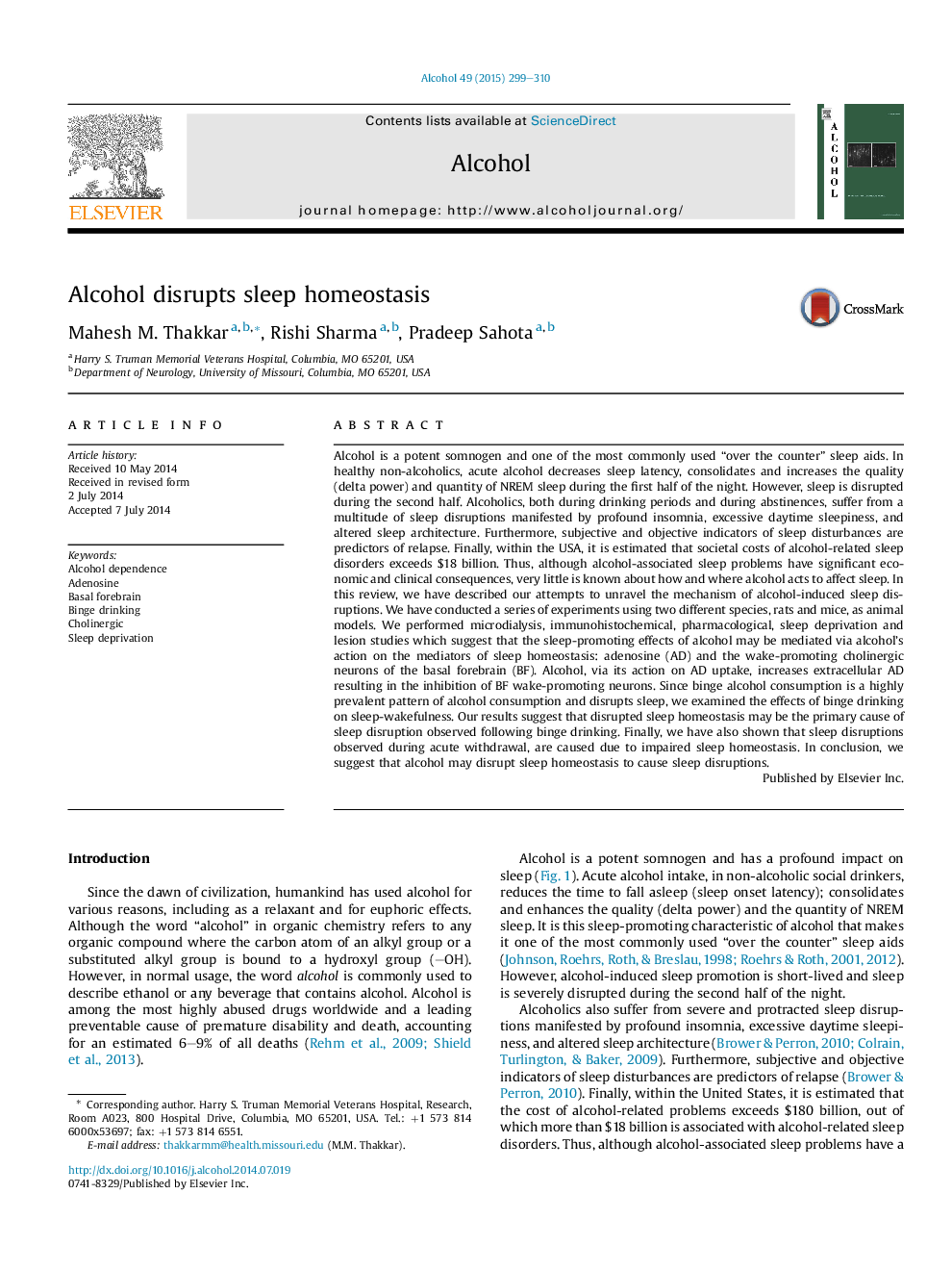| کد مقاله | کد نشریه | سال انتشار | مقاله انگلیسی | نسخه تمام متن |
|---|---|---|---|---|
| 1066839 | 948847 | 2015 | 12 صفحه PDF | دانلود رایگان |
Alcohol is a potent somnogen and one of the most commonly used “over the counter” sleep aids. In healthy non-alcoholics, acute alcohol decreases sleep latency, consolidates and increases the quality (delta power) and quantity of NREM sleep during the first half of the night. However, sleep is disrupted during the second half. Alcoholics, both during drinking periods and during abstinences, suffer from a multitude of sleep disruptions manifested by profound insomnia, excessive daytime sleepiness, and altered sleep architecture. Furthermore, subjective and objective indicators of sleep disturbances are predictors of relapse. Finally, within the USA, it is estimated that societal costs of alcohol-related sleep disorders exceeds $18 billion. Thus, although alcohol-associated sleep problems have significant economic and clinical consequences, very little is known about how and where alcohol acts to affect sleep. In this review, we have described our attempts to unravel the mechanism of alcohol-induced sleep disruptions. We have conducted a series of experiments using two different species, rats and mice, as animal models. We performed microdialysis, immunohistochemical, pharmacological, sleep deprivation and lesion studies which suggest that the sleep-promoting effects of alcohol may be mediated via alcohol's action on the mediators of sleep homeostasis: adenosine (AD) and the wake-promoting cholinergic neurons of the basal forebrain (BF). Alcohol, via its action on AD uptake, increases extracellular AD resulting in the inhibition of BF wake-promoting neurons. Since binge alcohol consumption is a highly prevalent pattern of alcohol consumption and disrupts sleep, we examined the effects of binge drinking on sleep-wakefulness. Our results suggest that disrupted sleep homeostasis may be the primary cause of sleep disruption observed following binge drinking. Finally, we have also shown that sleep disruptions observed during acute withdrawal, are caused due to impaired sleep homeostasis. In conclusion, we suggest that alcohol may disrupt sleep homeostasis to cause sleep disruptions.
Journal: Alcohol - Volume 49, Issue 4, June 2015, Pages 299–310
